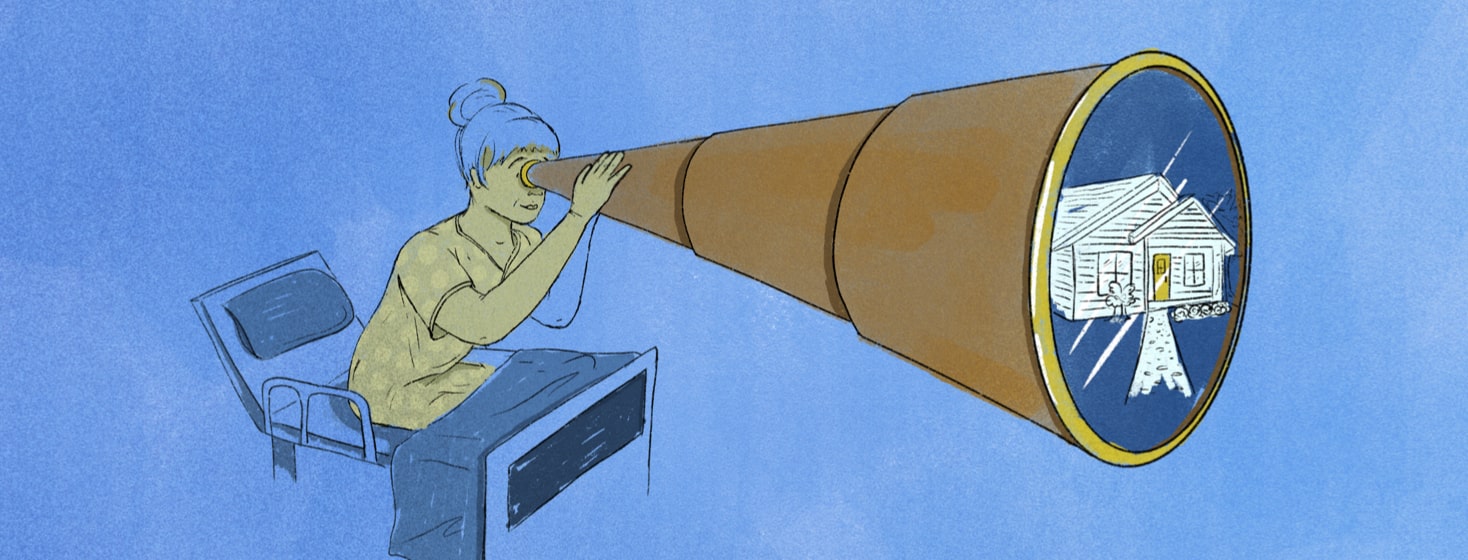Learning Your Urostomy: The Early Days Post-Cystectomy
I am just writing this after getting up this morning. My morning is probably very similar to anyone else's: having a shower, breakfast and as it is a weekday, getting dressed, and getting ready for work, only I also need to manage and care for two ostomies.
During the initial months of the COVID-19 pandemic and to an extent today, people's routines have changed. They have worked at home instead of in the office, they have juggled childcare and got over challenges of where work ends and home life begins, something which has become blurry for many.
The early days post cystectomy
In the initial days, weeks, and months post-ostomy surgery, I felt a very similar uncertainty.
My morning, noon, and night routines seemed turned on their head. A bit like having a new baby, everything seemed to revolve around what I was eating or drinking. When and where my ostomy bags need change, alongside the recovery from invasive surgery.
While in the hospital my number one goal, like most, was to get home. Getting home to recover properly with my husband and my bed in my own surroundings. That said, as the day for going home drew nearer, among the excitement was a twinge of apprehension.
The "must-do" list
I worried if I would manage. If we (my husband and I) would manage.
There would no longer be a medical team of care assistance, nurses, and doctors to assist me. No professionals to answer my questions there, and then to reassure me if something strange was normal. I wouldn't have a bed with support handles to help me get myself sitting up.
There were many things I had to learn to do in the initial days in hospital post-surgery such as learn to get myself out of bed, strength to walk unassisted, both stomas producing output without issue, and more. However, the one showstopper, the "must-do" before going home was to change my ostomy bags myself.
Goal setting and getting home
As soon as I knew this on day 2, I made it my goal to have this accomplished. That meant when my vital stats were fine and I could walk up and down stairs myself, that final hurdle was already in the bag, pardon the pun!
On the second day post-surgery, the ostomy nurse started to show me how to change my bags. By day 3, I was able to do it supervised and from day 4 I was changing my bags myself.
My approach was to focus on the end goal – getting home. I kept that in the forefront of my mind. Yes, it was strange managing the ostomies and to be quite honest, initially made me feel nauseous. Until this point, I had never changed a baby's diaper and the whole thing seemed so unnatural.
Learning your urostomy
I took notes when I was first shown how to handle the changes. I read through them each time I went to change initially to ensure I completed each step. The process itself, very quickly, became second nature.
The one key thing I quickly learned was while this was the criteria for getting home from the hospital - it was just the start of the journey.
Once home, I experimented, I got frustrated when something didn't work, got excited when a "fix" worked, and a whole range of emotions in between. I probably didn't cut myself enough slack as my body and mind were going through a massive physical and emotional recovery as well as surgical menopause.
Respect your learning curve
I did gradually develop a routine but there are always things to put it out of sync, overall, it becomes like having a shower or brushing your hair. You just do it! There are challenges and rough days, but you become resourceful as an ostomate and there is usually a workaround or a fix for most issues.
I quickly realized that the "poo taboo" was much easier to break. In fact, my colostomy uses few products and is relatively straightforward to manage while my urostomy is more complex as its retracted and needs a lot more products (despite me calling it Victor). I suspect its complexity means it's a female for sure!
Tell us about your early days post cystectomy in the comments below, or share your story with the community.

Join the conversation